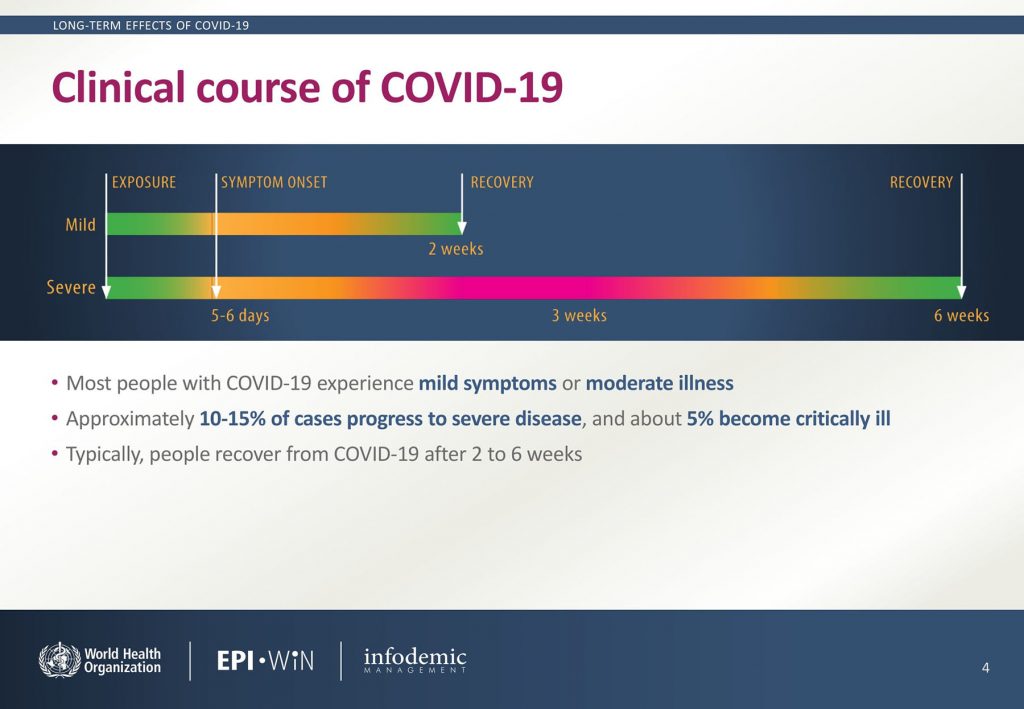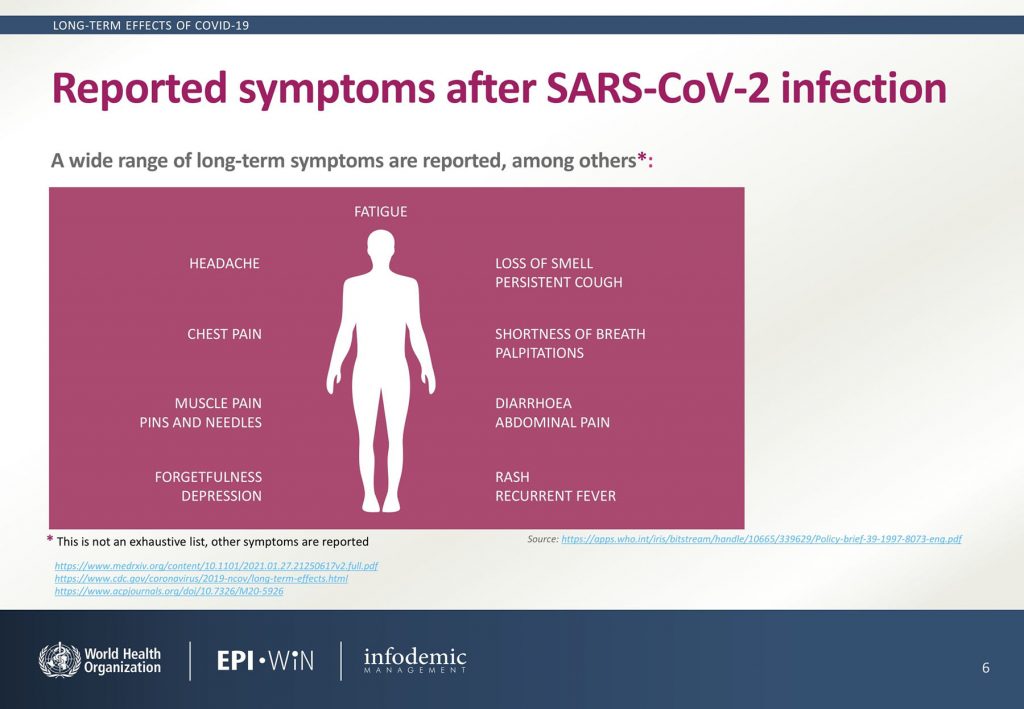
By Elesha George
While many are concerned about the immediate symptoms of Covid-19, medical experts are warning about the risk of possible long-term health problems after recovery.
Referred to as “long Covid” or “post-Covid syndrome”, possible ailments include mental illness, sexual dysfunction, fatigue, headaches, attention disorder, loss of smell, anxiety, sleep disorder, and psychiatric illness.
The clinical name for this state of health is post-acute sequelae of SARS-CoV-2 infection (PASC).
The condition occurs after someone who was infected with Covid-19 has tested negative but still has some symptoms lingering for more than a month. They may no longer test positive for the virus and are not infectious, but they might be severely incapacitated.
Most Covid patients experience mild symptoms or moderate illness which generally lasts about two to six weeks.
According to the World Health Organization (WHO), approximately 10-15 percent of global cases progress to severe disease, and about five percent become critically ill.
“It can happen to you even if you don’t know you have Covid,” noted Dr Lester Simon, Head of the Laboratory at Sir Lester Bird Medical Centre (SLBMC) and Chairman of the National Technical Working Group on Vaccines.
“As far as you know you don’t have Covid, you’re quite healthy. You haven’t had any tests done because you haven’t had contact with nobody, you haven’t travelled anywhere and all of a sudden you have problems,” he explained.
He said while people with underlying chronic medical conditions are more likely to have a serious reaction to Covid-19, it’s “a multi-systemic disease” that is capable of affecting every single part of the body from the hair to the toenails of anyone who is infected.
The doctor noted that the vascular disease affects the blood vessels much like diabetes, hypertension and obesity – the three most common health problems in the Caribbean.
“You first had a trio of vascular diseases and now Covid has come to form this quartet of vascular diseases and that’s why we say that Covid and its Trojan band of variants are chasing us into the sea,” he stressed.
Dr Simon recommends that people with health problems that would not ordinarily seem to be related to the coronavirus, should eventually take routine tests for Covid-19 to see if their illnesses are related to the disease.
According to the WHO, even people who are not hospitalised and who have mild illness can experience persistent or late symptoms. Some patients develop medical complications that may have lasting health effects.
Medical experts have said that taking a vaccine to reduce the risk of severe illness or death is the best available option.
Dr Simon advises people who may have had the virus but who are not vaccinated, to take the vaccine as soon as possible.
He explained that while the body has natural killer cells and antibodies to fight viruses, there is no way to know if the body can withstand future infections. It takes time to mount an immune response, he remarked, noting that vaccines provide ready-made protection against the virus.



